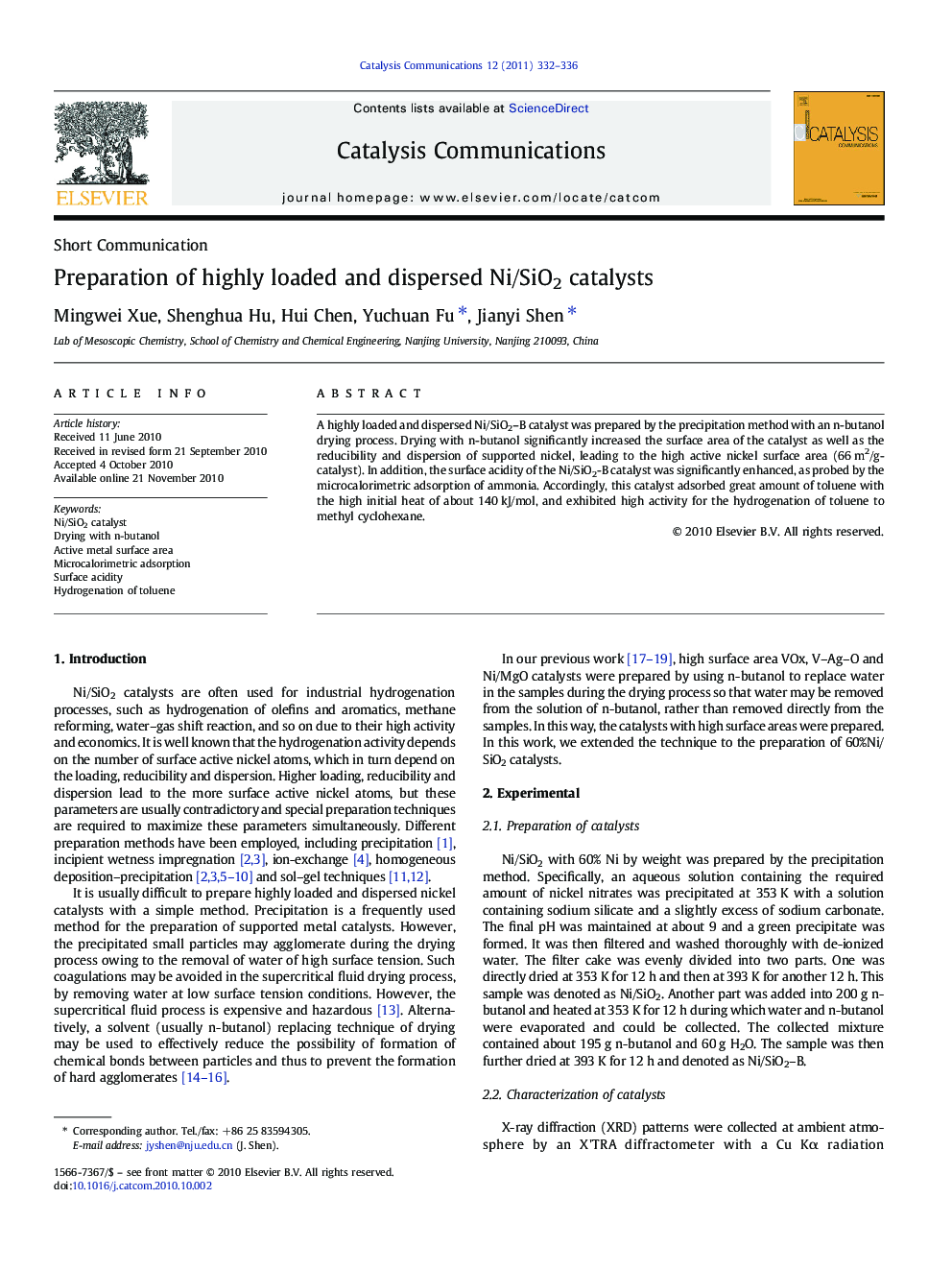| Article ID | Journal | Published Year | Pages | File Type |
|---|---|---|---|---|
| 50516 | Catalysis Communications | 2011 | 5 Pages |
A highly loaded and dispersed Ni/SiO2–B catalyst was prepared by the precipitation method with an n-butanol drying process. Drying with n-butanol significantly increased the surface area of the catalyst as well as the reducibility and dispersion of supported nickel, leading to the high active nickel surface area (66 m2/g-catalyst). In addition, the surface acidity of the Ni/SiO2-B catalyst was significantly enhanced, as probed by the microcalorimetric adsorption of ammonia. Accordingly, this catalyst adsorbed great amount of toluene with the high initial heat of about 140 kJ/mol, and exhibited high activity for the hydrogenation of toluene to methyl cyclohexane.
Graphical abstractA highly loaded and dispersed Ni/SiO2–B catalyst was prepared by the precipitation method with an n-butanol drying process. The catalyst exhibited high activity for the hydrogenation of toluene to methyl cyclohexane due to the high active nickel surface area and surface acidity.Figure optionsDownload full-size imageDownload as PowerPoint slideResearch Highlights► Drying with n-butanol greatly increased the number of surface Ni sites in Ni/SiO2. ► Nickel particles on SiO2 could be as small as 4 nm, even at the loading of 60 wt%. ► Treatment with n-butanol significantly increased the surface acidity of Ni/SiO2. ► Surface metallic Ni sites and surface acidity favored the hydrogenation of toluene.
